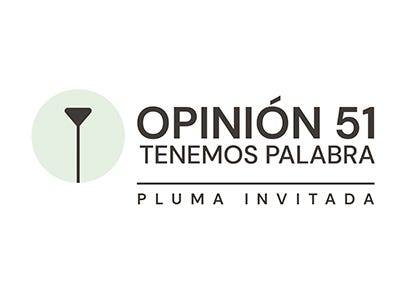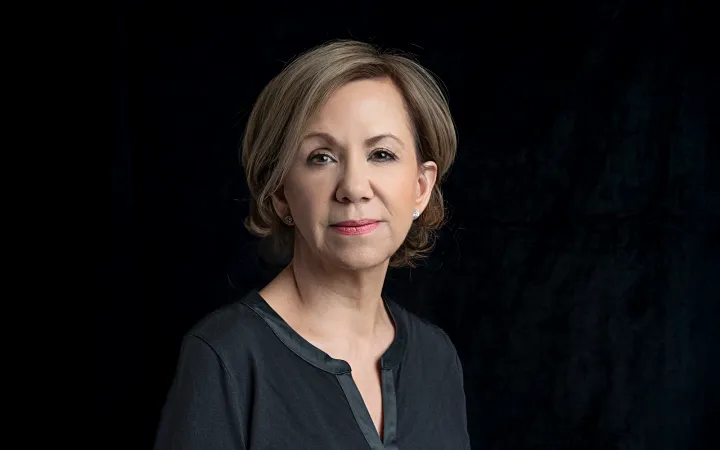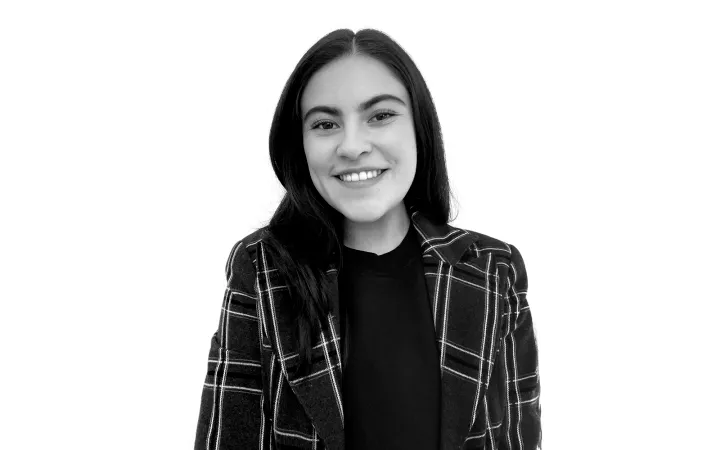Tu destino está en los demás,/Tu futuro es tu propia vida,/Tu dignidad es la de todos.
Goytisolo
¿Somos realmente artífices de nuestro propio destino?, ¿arquitectos de nuestra propia vida?, ¿guerreros de nuestras propias batallas?
Amado Nervo lo dejó grabado con tinta indeleble: “Vida, nada me debes. Vida estamos en paz.”
En 2016 leí una crónica que tocó mi corazón. Muchas las causas. Me recordó de sopetón, así a bote pronto, las veces que he renegado o escuchado a otros maldecir por un error o mal día. Me restregó en el alma la palabra dignidad, la cabalidad del amor y la lucha incansable llamada solidaridad.
La escribió Bárbara Anderson, hoy columnista de Opinión 51. En aquel momento supe que esa, su lucha, su viaje, debían de trascender la publicación del periódico. Recurrí entonces a twitter. Con un like me autorizó a reproducirlo en el noticiario matutino en el que por aquellas fechas colaboraba. Lo cité de manera textual no por desgarrador (pero sí) sino por abrazador; no por emotivo (aunque también) sino por el motivo, porque uno lo lee y sabe que la vida viene y va; la salud va y viene (a veces), pero el amor es como bien lo escribió Juan Gabriel, eterno. El amor de madre, la lucha de una madre.
La autora del texto que a continuación transcribo ha montado una exposición(junto con fotografías de Covarrubias) y escrito un libro “(In) VISIBLES, 24 mexicanos con discapacidad que cumplieron sus sueños”, que corroboran su compromiso vital por dar luz y visibilizar a todos esos seres que están en el mismo planeta, en el mismo viaje y trance que todos nosotros.
Publicado en Milenio en 2016 por Bárbara Anderson y reproducido en el noticiario de Buenos Días Hermosillo con Soledad Durazo. El viaje de Lucca.
“Hay viajes cortos y hay viajes largos.
Hay viajes que uno no sabe que está viajando hasta que frena la marcha y ve que todo alrededor ha cambiado.
Somos viajes. Nos movemos de un lugar a otro, viajamos de un sueño a otro, de un desamor a otro, de una oportunidad a otra, de un error a otro.”
“Los viajes no empiezan ni con un boleto de avión, ni en una terminal de autobús.
Los viajes empiezan dentro de uno mismo.
En 30 días nada más Lucca y nosotros (su papá, su mamá, su hermano Bruno y su inseparable Nayeli) haremos un viaje.
El más largo que cualquiera de nosotros ha hecho hasta ahora.
Un viaje que se postergó tres veces, un viaje que lleva dentro casi tres años de esperanzas, ilusiones, expectativas y ese raro vacío en la panza que generan las aventuras que nadie sabe cómo terminarán.”
“Nos vamos a la India.
Allá, en Bengaluru nos espera un grupo de ingenieros, físicos y médicos -mitad mexicanos y mitad indios- que crearon el Cybotron, un aparato nacido de la tecnología de los resonadores magnéticos, que también emite una radiofrecuencia, pero ya no para devolver imágenes sino para activar proteínas en las células cerebrales, regenerar tejidos dañados y rebalancear la carga eléctrica de las mismas.”
"Un tratamiento de 28 días completos, que exige ni más ni menos que mudarse a Asia. “Somos agua y electricidad”, nos dijo Roberto Trujillo, el neurólogo mexicano detrás de este invento.”
“Somos agua y electricidad que viajan.”
“¿Qué hacemos los cinco en esta cálida ciudad india probando un dispositivo de ciencia ficción? Este viaje empezó en realidad hace poco más de cinco años.
En la noche del 14 de octubre, en una sala de partos atiborrada de médicos y enfermeras. Andrés y yo esperábamos a Lucca (ni siquiera sabíamos que era niño: no quisimos saber el sexo hasta que naciera, para que la ilusión fuera completa).”
“En su viaje del vientre a la luz, Lucca frenó y quedó encajado en la recta final.
El murmullo alrededor se volvió silencio. La emoción se convirtió en miedo.
Un viaje corto, de no más de dos pujos, se volvió eterno, una maratón de un par de centímetros lo dejó sin aire y sin fuerzas.
No pude verlo hasta casi 12 horas después, como si lo esperara de regreso de un viaje transatlántico.
El médico se sentó en mi cama y me dijo que este había sido el peor parto de su vida, que ‘algo pasó’ esa noche y que aún no entendía que fue.”
“Entre el mareo, la oxitocina, los calmantes y la anestesia… yo tampoco sabía qué pasó.
Andrés tampoco sabía, viajando por los pasillos del hospital de terapia intensiva neonatal, a la administración y de ahí a mi cama para tranquilizarme. Ahora, que nos preparamos para este viaje a la India, entiendo qué pasó esa noche: se olvidaron todos de un detalle, cortar el cordón umbilical.”
“Hace más de cinco años que Lucca sigue adherida a nuestros cuerpos y a nuestras vidas para sobrevivir.
Dependió de nosotros para aprender a respirar, nunca pudo comer por sus propios medios (aún come por su ombligo), se abriga si lo abrigamos, sacia su sed si nosotros le pasamos unas gotas de agua con una jeringa por la boca, se comunica con nosotros por movimientos y pataditas (como en sus 9 meses en la panza) y con sus ojos que son su más poderosa arma para decir lo que siente, lo que le gusta y lo que no.”
“La parálisis cerebral de Lucca, la marca en su cabeza de ese primer viaje, se convirtió en la travesía más difícil, desconocida y agotadora que hemos emprendido con Andrés. Nos ha mostrado el lado más vulnerable pero también el más valiente de cada uno. Hemos sumado más pasajeros, como Bruno, que entiende perfecto que en este viaje hay que trabajar con Lucca cada día.
Nos convertimos en sus brazos, sus pies, en el sostén de su cabeza y en su voz.
Hemos aprendido cosas desde insólitas hasta vitales para sobrevivir, lo que nos ha llevado a buscar sin aliento hasta debajo de las piedras cualquier medicina, terapia, médico, dispositivo, accesorio para que su viaje sea más cómodo y más independiente.”
“Eso incluye cinco boletos para volar al otro lado del mundo.
Eso incluye aprender a domar las expectativas, una mezcla de fe y esperanzas, pero con altas dosis de realismo para entender que es ‘un tratamiento experimental’.
Lucca será el primer niño occidental en probar este método.
No hay antecedentes, no sabemos qué podrá recuperar gracias a esta técnica o exactamente qué mejorará en su condición actual.”
“Es un enorme signo de pregunta.
El mismo que teníamos cuando entramos en aquella sala de parto en 2011.
El mismo que todos cargamos cuando empezamos cualquier viaje.”
El mismo viaje que persigue a todo aquel que enferma, que padece, que sufre, que nace.
La respuesta está ahí, clara, llana, es una sola a la vista de todos. Se llama lucha, dignidad, amor.
Se pronuncia vida.
A veces los costos por estar vivo no se comprenden del todo. Constante interrogante,
que no tiene respuesta firme ni única, todo está en cómo se enfrente la adversidad. Víctor Hugo Rascón Banda, el dramaturgo, al enterarse de la enfermedad que finalmente lo llevó a la muerte escribió “Por qué a mí”, un libro sin desperdicio.
Bárbara Anderson le llama “el verbo viajar”, yo creo que es “el verbo estar”. Estar ahí siempre, con la mente, con el alma, con el corazón. Es estar callado, pero no ausente. Es estar en pie de lucha. Es no bajar la guardia. Es estar vivo.
Permítanme terminar este texto igual que como lo finalicé en 2016.
“Al leer, releer y compartir este maravilloso testimonio de ser, viajar, de vida… no puedo más que estar cierta que de pie esperaré las buenas nuevas del viaje de Lucca que por supuesto trae el regreso incluido.”
De pie he de estrechar la mano de Bárbara, pronto, muy pronto.
@perezata
Las opiniones expresadas son responsabilidad de sus autoras y son absolutamente independientes a la postura y línea editorial de Opinión 51.
Más de 150 opiniones a través de 100 columnistas te esperan por menos de un libro al mes. Suscríbete y sé parte de Opinión 51.





Comments ()